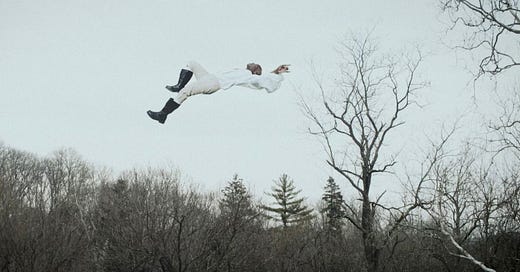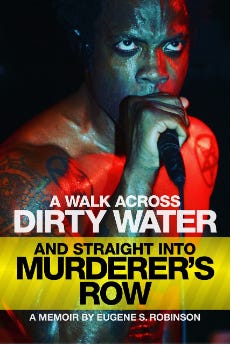
“You gotta meet this kid.” The speaker was a hot shot producer. But he was at a sweet spot nestled somewhere between high tech, business and an interest in riding the waves between them and the process of creation. He had met one of the Napster guys before Napster had a name and he had taken it upon himself to introduce the kid to some studio heads.
The studio heads took the meeting, smiled LA smiles and subsequently bid them both adieu. Doing nothing in the aftermath.
The teller of the tale pauses and in the quiet between us forms a thought: they, the studios and record labels, could have had it all. Most certainly before it had them. “But they just didn’t understand it.”
So misery all along the chain. Record stores, mostly gone, vinyl, and CDs, along with the newly resurgent cassette tapes, just curios for record collecting degenerates. Not essential, but essentially not necessary to enjoy music that streams on our thousand dollar phones.
The canary in the coal mine for all of this started easily enough: how is it that it gets harder and harder to make good horror movies these days?
Which seems forgotten in the lather of lukewarm excitement over things like the release of the new Scorsese film, Killers of the Flower Moon. Or the Golden Globes for movies we, at best, have read about. At worst? Movies like The Holdovers, or Poor Things which, even as I write this, I remain unsure if they’re actually really movies at all.
And this is not a product of COVID, or worsening cultural mores that see spectators checking their emails at live theater events. If the current state of cinema fails to excite, the blame resides squarely on the shoulders of the creators of the current state of cinema.
The canary in the coal mine for all of this started easily enough though: how is it that it gets harder and harder to make good horror movies these days? While familiarity breeds a certain kind of contempt, the fact that all of our lives are pressed up against the precipice of nonexistence should make this an easy get. However, in a place where everything is horrifying, is it easier or harder to make a movie that horrifies?
Sure, vampires, werewolves, mummies and zombies were not going to hold us forever, but a knife in the gut with no serious narrative content is just a knife in the gut. Also known as, Tuesday night in any major city. But honing in on “narrative” content things become clear. A lot of the best/earliest horror films were drawn from novels, written by novelists, and not only just horror movies.
Budd Schulberg, he of On the Waterfront, was a novelist. William Faulkner, a novelist, did The Big Sleep. F. Scott Fitzgerald, scripter of the Jazz Age tribute/critique The Great Gatsby, though fair to middling as a screenwriter, probably gladly watched as they made The Great Gatsby into a movie.
The New Hollywood movement of the 1970s that saw the elevation of cats like Bob Rafelson, Scorsese, Coppola, Dennis Hopper, and later Lucas and Spielberg, among others, was a reaction to Old Hollywood, as much as punk rock was a reaction to bloated stadium rock. And for a lot of the same reasons: old Hollywood was old, and sucked.
It sucked thoroughly but on a budget of $46 mil it made $342 mil. Which guaranteed sequels, prequels and more, all progressively worse than those before it.
The year was 1994 and we, lovers of film, were dead. We just didn’t know it.
But if you’re casting around for when and where the real slide into aesthetic insignificance started it was in all likelihood when the reference points ceased being wholly formed novels and became other movies, then downhill from there television shows. Specifically, in my mind, The Flintstones with John Goodman and Halle Berry.
Itself a ripoff of the Jackie Gleason-led The Honeymooners, The Flintstones cartoon show was wonderful in a pre-Simpsons kind of way. The live action remake, however, was the very essence of jive. It sucked thoroughly but on a budget of $46 mil it made $342 mil. Which guaranteed sequels, prequels and more, all progressively worse than those before it.
The year was 1994 and we, lovers of film, were dead. We just didn’t know it.
Sure we all have our personal faves — Allison Anders, Jarmusch, Sofia Coppola, Tarantino, Almodovar, Antoine Fuqua — but these were exceptions and not rules. And for every one of them there was a Michael Bay, or the Steve Jobs of film James Cameron (this is not meant to be a compliment).
So while mostly ignoring the recent Golden Globes, the three prevailing queries for modern makers of cinema still remained: so what, who cares and why are you telling me?
Moreover if you’re expecting that we’d be saved by the old New Hollywood crowd you’re woefully mistaken. When considering the differences between surrendering and giving up you need look no further than Scorsese and De Niro.
Post-cocaine Scorsese gave us the irksome DiCaprio in The Departed, a movie that had so little faith in its viewing audience that it had to actually show you a rat running along a balcony in the shadow of the state house to make sure we got it. Despite my critique though it won an Oscar.
Cocaine Scorsese, however, gave us Mean Streets, Taxi Driver, Raging Bull and maybe Goodfellas (would have to check with his sponsor on that though). And the star of a lot of that cocaine work, DeNiro? Let us look no further than Analyze This, and of course Analyze That, and the execrable use of his talents in the whole Meet the Fockers abortions. This is not surrendering. This is giving up.
Which is fine. The old always must make room for the new. But when the new is worse than the old? Well, apparently, we do things like text and talk through movies, bootleg them, or don’t watch them at all.
There are, of course, exceptions to every rule and there’s still a little excitement to be had if you know where to look. Will watch about anything Abel Ferrara does. If John Waters could get funding, I’d watch him too. Digging on Panos Cosmatos. The list is at least 20 deep but I had to dig to find some of these folks in ways that I didn’t have to dig in my struggle to avoid Barbie, a movie about a toy.
I come not to bury cinema though but to praise it because the power of moving pictures is such that if the studios manage to generate even ONE good movie in any 12-month period, that’s as low (or as high) as the bar need to be.
So, Hollywood? Can you do that for us in 2024 please? Here’s hoping.

OK…So you have ordered the memoir A Walk Across Dirty Water and Straight Into Murderer's Row, from Amazon…Or the Bookshop.Org dealie: Here?
Might you consider giving it a review in either of those places?
I’ve been told it matters, somehow. So please: review away! Unless you think it sucks. Then, maybe, just keep that part to yourself. We need at least 50 reviews. At last count there were 45…so yeah…GET AT IT!!!





"The old always must make room for the new. But when the new is worse than the old? Well, apparently, we do things like text and talk through movies, bootleg them, or don’t watch them at all."
THIS. A million fuk'n times. But let's apply it to music.
I wanted to be that curmudgeonly prick that would stick my fingers in my ears and utter the immortal line, "You call this music? Stop!" No. Now I just want to slap everybody new and young for boring the living hell out of me. I wish most of them would pass out in mid-yawn, mouth open into a four-foot mound of horseshit once they crashed from whatever taurine-derived energy drink they've been forced to pimp.
Kids today! Cowering to focus groups and the acquisition of market share, I tells ya...